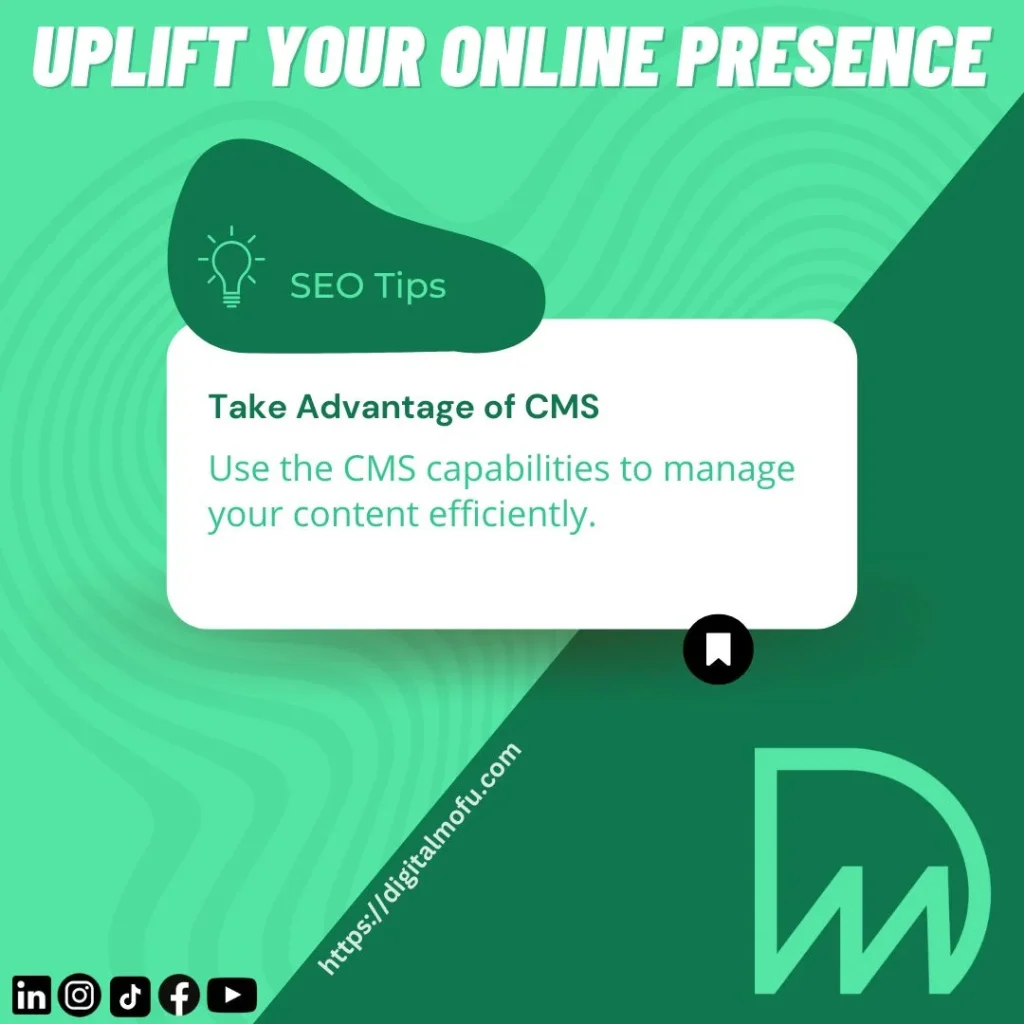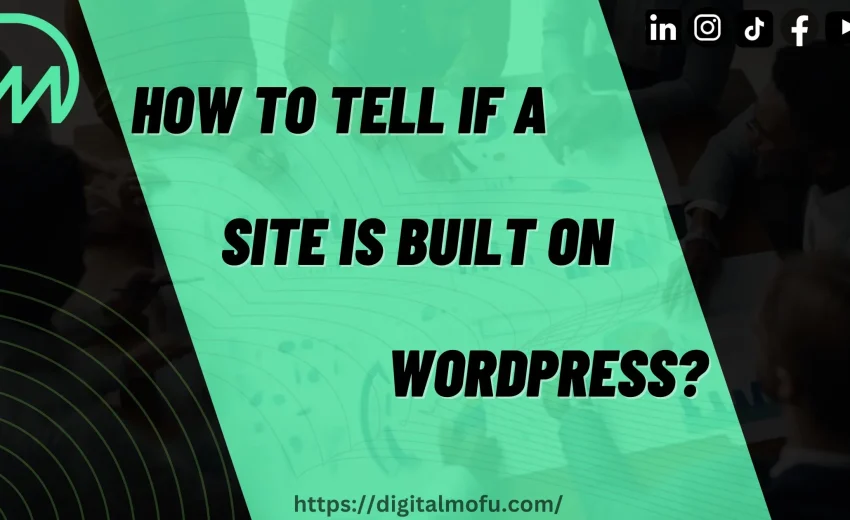WordPress is the world’s most popular content management system (CMS), powering over 40% of websites on the internet. Whether you’re a web developer, designer, digital marketer, or just curious about a website’s platform, knowing how to identify if a site is using WordPress can be extremely helpful. This article will guide you through several methods, ranging from simple visual cues to more technical checks, to determine if a website is powered by WordPress.
Check for “Powered by WordPress” in the Footer
One of the simplest ways to check if a website is built on WordPress is to look for a “Powered by WordPress” message in the footer. Many WordPress sites include this text at the bottom of their pages by default, though it can be easily removed or customized. So, if you spot this phrase, it’s almost certain the site is powered by WordPress.
However, it’s important to note that some site owners choose to remove or replace this footer message to create a more customized or branded experience. Therefore, its absence doesn’t necessarily mean the website is not built with WordPress.
Check the URL Structure
WordPress has a specific URL structure for accessing important administrative sections of a website. You can test this by adding /wp-admin or /wp-login.php to the end of a website’s URL. For example, if the website is “example.com,” try visiting “example.com/wp-admin” or “example.com/wp-login.php.”
If you see a login page for WordPress, you’ve likely discovered that the site is using WordPress. Keep in mind, though, some website owners implement security measures to hide or block access to these pages, so you might not always be able to access them.
Inspect the Page Source for “wp-content”
A more technical method to determine if a site is using WordPress is by inspecting the source code. To do this, right-click anywhere on the webpage and select “View Page Source” or “Inspect.” This will bring up the HTML code for the website.
Once you have the source code open, use the search function (Ctrl + F on Windows, Cmd + F on Mac) to look for “wp-content.” This is a directory used by WordPress to store media, themes, plugins, and other important files. If you find this in the source code, it’s a clear indication that the website is built with WordPress.
Additionally, WordPress websites often have specific meta tags, such as <meta name="generator" content="WordPress">, within the HTML source. While some developers may remove this for security reasons, it’s another potential clue.

Use Online Tools to Detect WordPress
If you don’t want to inspect the website manually, there are several online tools that can help you quickly determine if a site is built with WordPress.
IsItWP
IsItWP is a popular website detection tool. Simply go to isitwp.com, enter the website’s URL, and the tool will analyze the site for WordPress indicators. It’s a fast and easy way to confirm whether a site is using WordPress.
BuiltWith
BuiltWith is another comprehensive tool that provides a detailed analysis of a website’s technology stack, including whether it is using WordPress. It can also show what themes, plugins, and other technologies the site is using. You can access it at builtwith.com.
Look for WordPress-Specific Files
WordPress sites come with several default files that are part of the core installation. You can often identify these files by adding certain paths to the website’s URL. For example:
/license.txt/readme.html/wp-config.php
These files are part of the standard WordPress installation and may be accessible via a web browser. If you append these paths to the site’s main URL (e.g., example.com/license.txt), and the page opens, it’s a strong indicator that the website is built on WordPress. However, many site owners will remove or secure these files to protect against hackers, so their absence doesn’t rule out WordPress.
Check the Robots.txt File
Every website has a robots.txt file, which is used to guide search engine crawlers about what parts of the site they should or shouldn’t access. You can usually access this file by adding /robots.txt to the website’s URL (e.g., example.com/robots.txt).
In many WordPress sites, the robots.txt file will contain directives specific to WordPress, such as:
makefileCopy codeUser-agent: *
Disallow: /wp-admin/
Disallow: /wp-login.php
These lines are part of the standard WordPress configuration, which blocks search engines from crawling sensitive admin pages. If you spot these or similar directives in a site’s robots.txt file, it’s a strong clue that the site is powered by WordPress.
Use Browser Extensions
If you prefer an easier, more automatic method, several browser extensions can help you identify whether a website is using WordPress.
Wappalyzer
Wappalyzer is a popular browser extension that detects a wide range of technologies used by websites, including content management systems like WordPress. Available for both Chrome and Firefox, it shows you all the technologies used on a website, making it an excellent tool for developers and marketers.
BuiltWith Extension
The BuiltWith browser extension for Chrome and Firefox provides a quick and easy way to find out what technologies a website is using. Once installed, you can click on the icon to see a detailed breakdown of the website’s stack, including whether it’s powered by WordPress.
Look at the Website’s Design and Functionality
WordPress offers a wide range of free and premium themes, many of which have distinctive features or layouts. Although it’s not a foolproof method, if you notice certain common WordPress design elements such as the presence of a navigation menu that looks like a standard WordPress theme or a footer with a “Powered by WordPress” link, it’s worth further investigating.
Similarly, common plugins like contact forms, sliders, and social media sharing buttons may also suggest the use of WordPress, especially if the site uses one of the well-known plugins (e.g., Contact Form 7, Jetpack, or Elementor).
Frequently Asked Questions (FAQs)
Can I tell if a site is built with WordPress by just looking at it?
In some cases, yes. WordPress sites often have specific design elements or structural features that make them easy to identify. However, many WordPress websites are heavily customized, and some website owners may remove or hide default WordPress signatures, making it difficult to tell at first glance.
Does the presence of “wp-content” in the source code mean the site is definitely using WordPress?
Yes, the presence of “wp-content” in the source code is a strong indicator that the site is built on WordPress. However, this is not a guarantee, as some websites may use this term in custom URLs or file structures. Still, in most cases, it’s a clear sign.
Can I use online tools to detect WordPress for free?
Yes, tools like IsItWP and BuiltWith offer free versions that allow you to detect if a website is using WordPress. While the free versions may have some limitations, they should be sufficient for basic checks.
How can I protect my WordPress site from detection?
If you want to hide the fact that your website is using WordPress, you can take several steps, such as:
Removing the “Powered by WordPress” footer.
Disabling or modifying the “wp-login.php” page.
Using custom themes or plugins that do not show typical WordPress design features.
Hiding WordPress-specific files (e.g., license.txt, readme.html).
Are there any security concerns if a site is identified as being built on WordPress?
WordPress is a popular target for hackers due to its widespread use. However, if you keep your WordPress installation up to date and follow security best practices (such as using strong passwords and limiting login attempts), it can be secure. Identifying a site as WordPress doesn’t necessarily make it more vulnerable; it’s the site owner’s security practices that matter most.
Conclusion
Determining if a website is built with WordPress can be done through a combination of methods, ranging from simple visual checks to more technical inspections. While tools like IsItWP and BuiltWith provide quick answers, a deeper dive into the site’s URL structure, source code, and file directories can provide more reliable insights.
Keep in mind that while WordPress is widely used, many website owners take steps to customize or secure their installations, which can sometimes make detection more challenging. Nevertheless, these techniques should cover most scenarios and help you determine if a site is powered by WordPress.
Ready to Take Your Website to the Next Level?
If you’re looking to build or optimize a WordPress website in Oxfordshire for your business, Digital Mofu can help! Our expert team specializes in WordPress website design, development, and SEO to ensure your site stands out and performs at its best. Whether you need a custom theme, advanced functionality, or a complete redesign, we’ve got you covered.
Contact us today to discuss how we can help you create a stunning and high-performing WordPress website that drives results!






